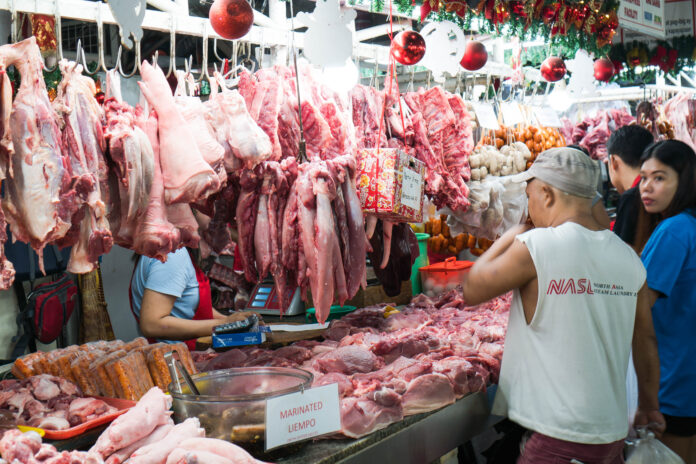The Philippines has seen a notable increase in meat imports during the first nine months of 2024, with total shipments reaching 1.04 billion kilograms, a 12.6 percent jump from only 923.16 million kilograms in the same period last year. Latest data from the Bureau of Animal Industry (BAI) shows that pork remains the dominant product, making up nearly half of all imported meat.
Pork imports accounted for 517.86 million kilograms, or 49.8 percent of the total, marking a 12.9 percent increase from 2023’s 458.7 million kilograms. Chicken followed closely, with imports rising 6.4 percent to 345.86 million kilograms, representing 33.3 percent of the total meat imports. Beef imports saw a significant surge, up 35 percent year-on-year to 144.02 million kilograms.
Meanwhile, imports of buffalo meat fell 4 percent, reaching 30.38 million kilograms, while turkey imports skyrocketed by 301 percent, growing from 270,456 kilograms in 2023 to 1.09 million kilograms in 2024. Lamb and duck imports, however, showed declines, with lamb down 12 percent to 566,307 kilograms and duck meat dropping 42 percent to 132,964 kilograms.
Industry experts, including Jess Cham, president emeritus of the Meat Importers and Traders Association, have pointed to the increased availability of imported meats as a sign that supply will be sufficient for the upcoming Christmas season. According to recent data from the Department of Agriculture’s Bantay Presyo program, prevailing prices for key cuts of meat in Metro Manila markets are as follows: pork kasim at P280 to P360 per kilogram, pork liempo at P330 to P400, whole dressed chicken at P145 to P210, beef rump at P410 to P490, and beef brisket at P320 to P460.
With the holiday season approaching, these import trends are expected to help stabilize meat prices and ensure sufficient supply for consumers.







